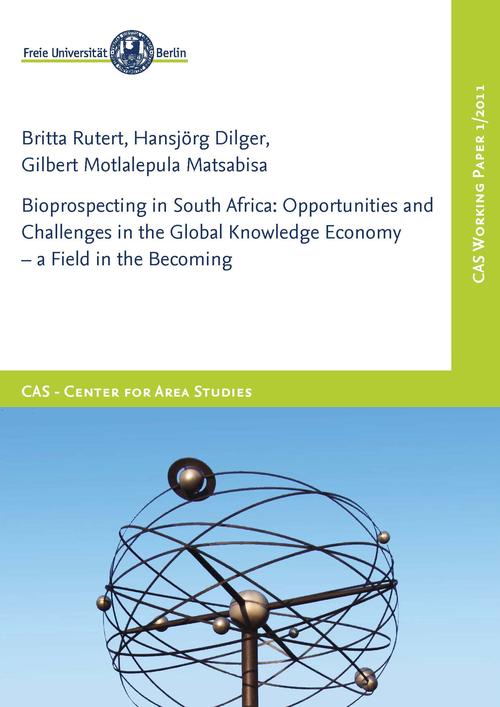CAS WP 1/2011
Bioprospecting in South Africa: Opportunities and Challenges in the Global Knowledge Economy - a Field in the Becoming
Britta Rutert / Hansjörg Dilger / Gilbert Motlalepula Matsabisa
Bioprospecting in South Africa as well as in other parts of the world is an old field with new political, economic and socio-cultural implications. While in colonial and precolonial settings the search for exotic flora and fauna prevailed, nowadays the search for and exploitation of biodiversity for commercially valuable genetic and biochemical resources is predominant. In South Africa, a wide range of actors has become involved in the field of bioprospecting over the last two to three decades: medical researchers, traditional health practitioners (THPs), herbalists and plant collectors, politicians and NGOs are all involved in this realm.
This working paper presents first results from an ongoing research project funded by the DFG (German Research Foundation) on “Bioprospecting in the African Renaissance: From Muthi to Intellectual Property Rights” at the Institute of Social and Cultural Anthropology, Freie Universität Berlin (FU Berlin). The authors discuss diverging concepts of property in relation to plants and knowledge about plants, different modes of knowledge protection and disclosure in the context of bioprospecting, and the attempts of South African NGOs to establish Intellectual Property Rights and patenting mechanisms on behalf of “indigenous communities.” The paper argues that the field of bioprospecting in South Africa has been shaped not only by the country’s Apartheid and post-Apartheid history, but also the complex dynamics of cultural identity and the (scientific as well as economic and social) aspirations of a wide range of actors to become involved in the emerging global knowledge economy.
-> CAS WP No. 1/2011 (pdf, 847 KB)

